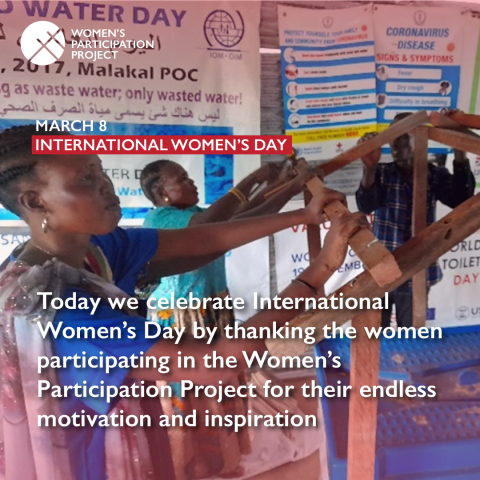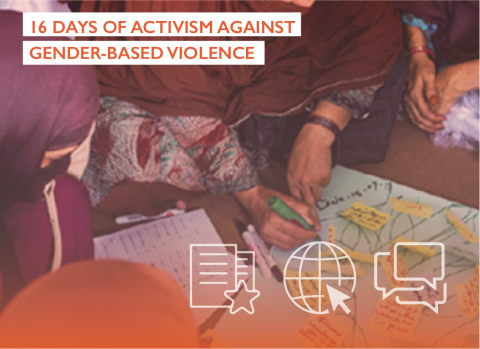Addressing displaced women's mental triggers through a mindful response
10 October 2022, Geneva– One in five persons displaced due to war or conflict will suffer from mental health problems caused by tragic events they experience somewhere in their displacement journey[1]. Unemployment, poor socioeconomic conditions, lack of social integration, and gender-based violence are risk factors for mental health conditions that are more likely to affect displaced women than men[2].
On World Mental Health Day, we explore how the Women's Participation Project (WPP) supported displaced women and girls' psychological well-being by attuning their voices, addressing their needs, promoting gender equality, and encouraging economic independence, as these values have proven a direct and beneficial effect on women's mental health [3].
"The project has equipped me with different skills that have made me look at myself with more confidence and strength. I am more aware of my worthiness, power and resilience as a woman, mother, and community member. " a female survivor of Ecuador's earthquake mentioned.
The Project has supported women in knowing their rights and participating in decision-making in the sites: "Before participating in this project, I was confined in a room, weeping all day. Then I decided to be proactive and part of a women's committee. After receiving the leadership training, I feel I can do many things, explain many issues, and help other women address their needs." said a displaced woman living in Bangladesh.
The lack of information about food distribution or how to obtain essential services could trigger humanitarian response-induced anxiety [4]. The WPP allows women equal access to information and services and provides awareness sessions on different topics: "I can now help protect my family and community from COVID-19 after the awareness training I received. Women are reaching out to me to learn how to make masks, which makes me feel valued in my community." A displaced woman from South Sudan said.
The initiative supported women to learn new skills and engage in breadwinning activities leading to economic independence and personal satisfaction. "I learned how to tailor and make bedsheets and tablecloths. Now I am earning a steady income and contributing to my family, and I feel so proud of this achievement ". Another woman from South Sudan stated.
The project has also educated men on women's rights and stimulated change by letting them experience the difficulties women and girls face due to gender: "Our society favours men over women, and this must change now; as we leave this training, we should be the change-makers in our society," said one male training participant in South Sudan.
The Women's Participation Project, a global initiative implemented by IOM, will continue to support equitable and meaningful participation and representation of displaced women and girls. Initiated in 2016, the project is a part of the 'Safe from the Start' Initiative funded by the Bureau of Population, Refugees, and Migration (BPRM).
The project has helped amplify the voices of more than 5000 displaced women and girls in 12 countries worldwide and has contributed to mitigating the risk of gender-based violence in these locations.
References:
[1] https://www.who.int/news-room/fact-sheets/detail/mental-health-in-emergencies
[2] https://www.who.int/news-room/fact-sheets/detail/mental-health-in-emergencies
[3] https://www.un.org/womenwatch/daw/csw/mental.ht
[4] https://www.who.int/news-room/fact-sheets/detail/mental-health-in-emergencies


